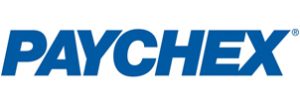 Laundromat owners can find themselves in a dilemma – they want to grow their businesses to meet demand, but tight financial circumstances can make it difficult to expand. Fortunately, there are a number of tax credits, grants and incentives that can encourage small-business growth.
Laundromat owners can find themselves in a dilemma – they want to grow their businesses to meet demand, but tight financial circumstances can make it difficult to expand. Fortunately, there are a number of tax credits, grants and incentives that can encourage small-business growth.
Here’s a look at some of the government and municipal programs created to help small businesses grow and thrive, according to HR/payroll services specialist Paychex:
There are a number of federal government tax incentives in the form of business tax credits or tax breaks for small business. Three examples include the Small Business Health Care Tax Credit, the Work Opportunity Tax Credit and the Employee Retention Tax Credit.
A particularly lucrative federal tax credit is the Small Business Health Care Tax Credit, which is available to eligible small employers that provide healthcare coverage to their employees.
In general, this small-business incentive benefits companies that have fewer than 25 full-time equivalent employees, pay average annual wages per FTE of less than $56,000 for tax year 2021, and pay at least half of employee health insurance premiums. To qualify for the credit, businesses must pay premiums for employees enrolled in a qualified health plan offered through a Small Business Health Options Program Marketplace (or qualify for an exemption).
The federal Work Opportunity Tax Credit applies when you hire people from certain groups – such as veterans, ex-felons or food stamp recipients. There is no limit on the number of qualified employees you can claim and companies can receive a credit of up to $9,600 per employee. The WOTC is authorized through December 31, 2025.
As part of the CARES Act, the Employee Retention Tax Credit encourages businesses to keep employees on their payrolls by offering a tax credit in 2020 of 50 percent of wages paid up to $10,000 annually. In 2021, the law changed and provided a tax credit of 70 percent of paid waged up to $10,000 per quarter, for the first three quarters. The credit is available to eligible employers whose business has been financially impacted by COVID-19.
In addition, there are a number of federal and state small-business grants.
Opportunities for federal small-business grants may exist if your business is involved in research and development or wants to expand training for employees. These grants can help cover employee-training expenses, often for both new and existing employees. Each training program is different – some will reimburse companies for a percentage of their trainer fees while others will also cover space rental expenses. A few programs will even cover the wages of the employees being trained. Reach out to the U.S. Department of Labor and state economic-development agencies to find out which opportunities might be available for your business.
Local municipalities may offer grants to help businesses grow programs that can benefit their region. Grants may be targeted to help a region increase its appeal by encouraging certain types of businesses. There can be grants for startups, grants to improve environmental practices or grants for small businesses trying to expand into a particular field such as renewable energy. Check with your city or county for opportunities.
Also, motivated by a desire to give back to the community or help a small business grow in a way that highlights its own mission or marketing message, large corporations can be a source of small-business grants. For example, there are grants for forward-thinking ideas, for businesses that provide outreach programs for kids and for operations that are at least 50 percent veteran-owned, among many others. Corporate grants can be competitive, but they are worth researching.
Beyond grants and tax credits, other small-business incentives do exist. These programs can ease your tax burden or provide financial assistance in exchange for helping a city, county or state achieve its goals of stimulating its economy and improving the lives of residents. Pay attention to the specifics of each program so that you can align your growth plan accordingly.
If your business is ready to grow, state-hiring incentives can help offset your expenses, but make sure you understand a program’s requirements before bringing on new hires. These may include:
- Are employees part-time or full-time?
- Will you be providing benefits?
- What is the expected wage?
- Are you hiring minorities or members of underserved communities?
Whether you’re a startup, expanding your current business or relocating your operations, a government agency will want to know details on how your business will improve the region. The particulars may include:
- Will your business improve the appearance of the surrounding area?
- Is your business part of a region’s targeted industry?
- Are you relocating to an area that is distressed or needs redevelopment?
- Do you have other sources of funding for your startup or an expansion?
Because local, state and federal governments want to strengthen the economy, you’ll likely need to discuss how many new job positions your business will be providing, along with:
- How many jobs will your business create, versus how much incentive money you will receive?
- What is your anticipated timeline for filling these positions?
- What happens if the economy falters outside of your control and you aren’t able to create the agreed-upon number of jobs?
[As part of its CLA Business Solutions program, the Coin Laundry Association has established a national relationship with Paychex to help simplify the challenges of HR, payroll and benefits administration so that the association’s members can enhance their efficiency and productivity.]











